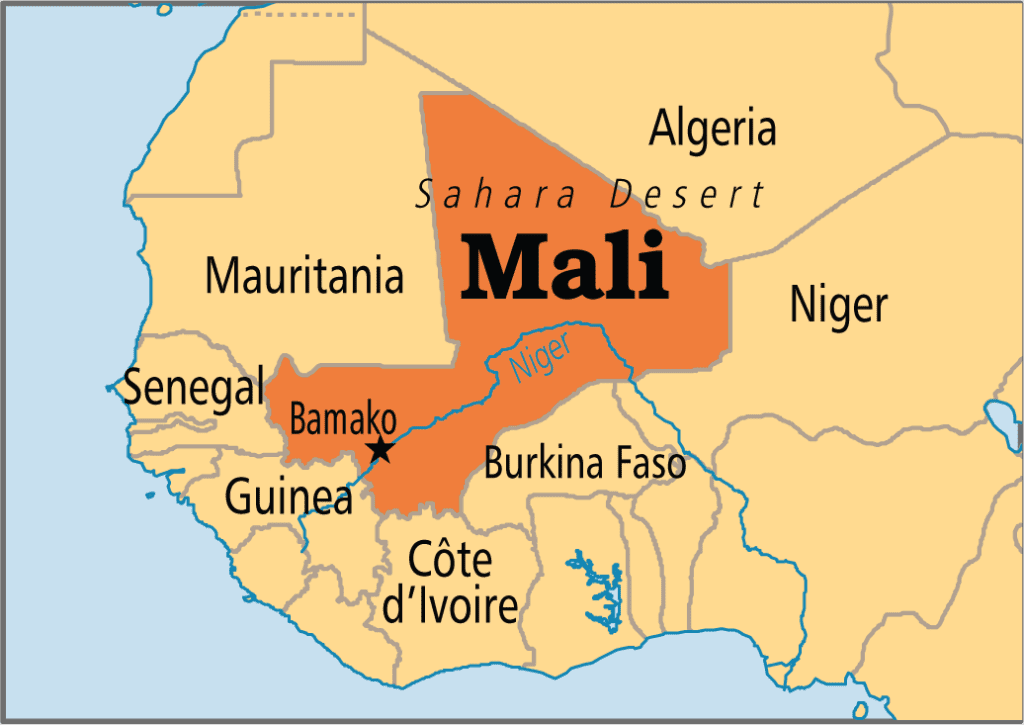In Mali, civilians lack the necessary protection against the abuses of jihadist groups, reports said on Friday.
Has the security situation improved in Mali since the military took power? No, according to a Human Rights Watch (HRW) report released Thursday, October 27.
According to this rights organization, armed Islamist groups have killed hundreds of people and forced dozens more to leave their villages in systematic attacks since March 2022.
These armed groups are believed to be affiliated with the Islamic State in the Greater Sahara (ISGS), which has been promoted to a full province of the jihadist organization since March.
Human Rights Watch’s interviews with witnesses revealed that these radical Islamists have “attacked dozens of villages and slaughtered large numbers of civilians in vast areas of northeastern Mali, notably Menaka, and Gao,” noting that “these terrifying and coordinated attacks have largely targeted the Daoussahak ethnic group, a Tuareg tribe.”
For example, between May and June 2022, attacks in three villages in the Menaka and Gao regions left at least 73 civilians dead, while community leaders report that nearly 1,000 civilians have been killed in the region since March.
The massacres followed a clash between the Islamic State group and the Daoussahak-leaning Movement for the Salvation of Azawad (MSA).
The targeting of civilians is not unique to northern Mali and is not the exclusive domain of any one jihadist group. HRW reports that the center of the country is also experiencing similar events. On June 18, the Macina Katiba of the ‘Groupe de Soutien à l’Islam et aux Musulmans (GSIM) killed 132 civilians in villages in the Bankass cercle in central Mali.
In response, the Malian armed forces (FAMAs) and peacekeepers of the Multidimensional Integrated Stabilization Mission in Mali (MINUSMA) are urged to increase their presence in the affected areas. Human Rights Watch expects both forces to step up their civilian protection patrols.
Arm wrestling between Paris and Bamako
Dislodged from the towns they occupied in 2012 in northern Mali by the French intervention Serval in 2013, jihadist groups remain active in the Sahelian country, leading to the intervention of Russia’s Wagner mercenaries, under the aegis of the new authorities resulting from the May 2021 coup d’Etat, after a first one nine months earlier against Ibrahim Boubacar Keita (IBK), according to several Western media and diplomats.
On a tour of four Sahelian countries, including Mali, from October 16 to 20, U.S. Undersecretary of State for Political Affairs, Victoria Nuland said the security situation has hardly improved, blaming it in part on Russian forces whose arrival nearly ejected French forces from Mali, as acknowledged Monday, at the opening of the Dakar International Forum on Security and Peace in Africa, Chrysoula Zacharopoulou, by the French Secretary of State for Development, Francophonie and International Partnerships.
“Faced with Malian authorities who have decided to prioritize their political survival at the expense of the fight against terrorism, the political conditions were no longer met for France to continue working alongside the Malian armed forces,” she said. The next day, Bamako responded through its Minister of Foreign Affairs. Abdoulaye Diop, who was taking part in a seminar on global crises and sovereignty in Africa, described the French Secretary of State’s statement as “a great public relations operation, but one that lacks sincerity.”
On Tuesday, October 18, the head of Mali’s diplomacy reiterated before the UN Security Council the request for a special plenary session to allow Mali to present its evidence against France, accused of collusion with jihadist groups. Nicolas de Riviere, France’s Permanent Representative to the United Nations called these claims “false and defamatory.”
AC/fss/abj/APA


